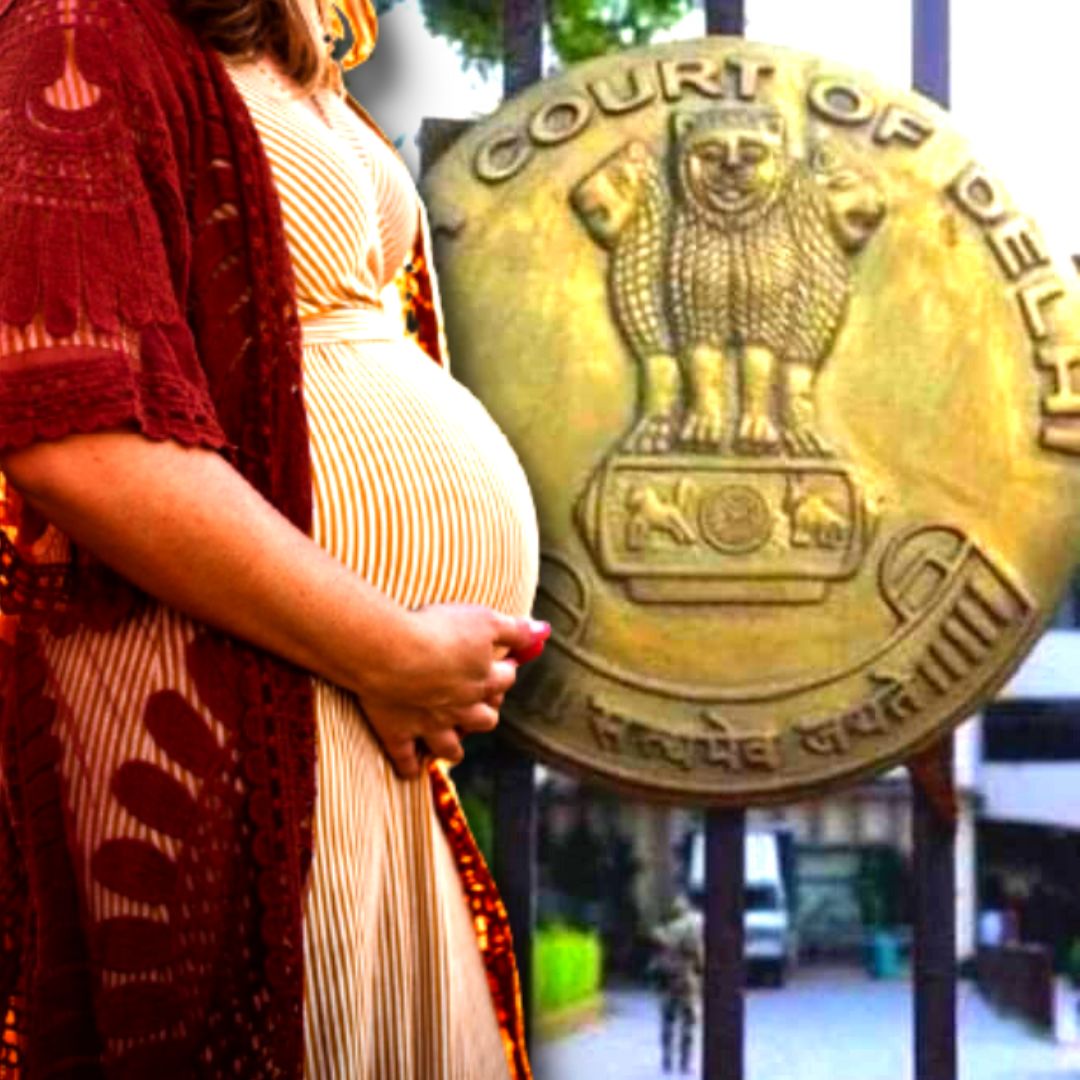
Image Credit: Unsplash and IndiaToday (Representational)
Abortion Laws In India: Delhi HC Rejects Plea Of Unmarried Woman To Terminate Pregnancy At 23 Weeks
Writer: Simran Jeet
She is a a dedicated and an optimistic person who believes in learning from experience.
Delhi, 17 July 2022 8:04 AM GMT | Updated 17 July 2022 8:19 AM GMT
Editor : Snehadri Sarkar |
While he is a massive sports fanatic, his interest also lies in mainstream news and nitpicking trending and less talked about everyday issues.
Creatives : Snehadri Sarkar
While he is a massive sports fanatic, his interest also lies in mainstream news and nitpicking trending and less talked about everyday issues.
The petitioner, a 25-year-old unmarried woman from Manipur, is refused termination of pregnancy which is 23 weeks and five days, by the Delhi High court.
In a ruling, the Delhi High Court has refused to allow an unmarried woman to undergo medical termination of pregnancy at 23 weeks as it would amount to killing a foetus. The court said that under the Medical termination of pregnancy act of 2020, it is not permitted to abort a foetus after 20 weeks. In this regard, the High Court has sought the Centre's response on the woman's contention that excluding unmarried women from being allowed to undergo medical termination of pregnancy up to 24 weeks was false and discriminatory.
Looking Into The Case!
The petitioner, a 25-year-old woman, who would complete 24 weeks of gestation on July 18, is an Arts graduate and belongs to the state of Manipur. She told the court that her partner, with whom she was in a consensual relationship, had refused to marry her. She stressed that giving birth out of wedlock would cause her mental agony and social stigma, reported NDTV.
The legislature has "purposefully excluded consensual relationship" from the category of cases where termination is permissible after 20 weeks and up to 24 weeks, thus granting time to unmarried women to undergo the procedure of medical termination of pregnancy. In 2020, The bill called Medical Termination of Pregnancy (Amendment) 2020 was passed, which sought to increase the upper limit for termination of pregnancy from 20 to 24 weeks for specific categories of women- on the grounds of foetal abnormalities or pregnancies due to rape faced by women.
Kerala High Court Allows Abortion For Rape Victims
In another case, the Kerala high court gave permission to terminate the 24-week pregnancy of a minor rape victim at a government hospital and directed to constitute of a medical team to conduct the procedure. It suggested that in the meanwhile, the petitioner can be kept "somewhere safe" until she delivers the child, who can subsequently be given up for adoption, reports The Hindustan Times. The court ordered that the hospital ensure that the baby is offered the best medical treatment. It also noted that if the petitioner was unwilling to assume responsibility for the baby, the state and its agencies shall assume full responsibility and offer medical support and facilities to the child.
In India, the Medical Termination of Pregnancy Act, 1971, allows for legal abortions under specific conditions. According to the Ministry of Health and Family Welfare, an abortion in India is lawful under this Act. If it is terminated in 20 weeks (approximately five months), it must have a doctor's approval, and a medical professional should perform it at a recognised medical institution. A 12-week pregnancy may be terminated based on the opinion of one doctor, and termination of a 12 to 20-week pregnancy requires the idea of two or more doctors. The state should form a team of doctors to abort a foetus of more than five months having substantial abnormalities. Each panel must have a gynaecologist, paediatrician, radiologist, and other members notified by the state government.
Abortion laws have been strict in countries like the United States, where the historic and landmark Roe V Wade case was overturned by the Supreme court in favour of strict Mississippi abortion law. Roe V Wade has been the basis of legal abortion across the USA for nearly half a century. With six conservative judges, including five men, the ruling struck down the constitutionally protected right to abortion, resulting in an immediate ban on abortions with some exceptions in republican-governed states. The decision has caused widespread resentment against abortion law, and human rights activists said that the court's decision would turn women into second-class citizens.
 All section
All section













